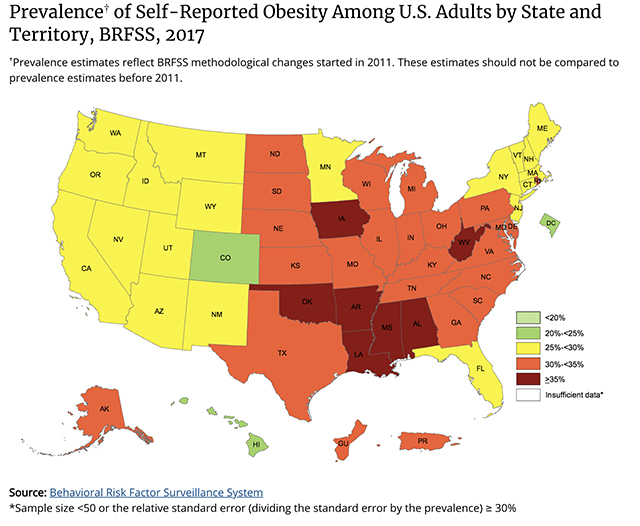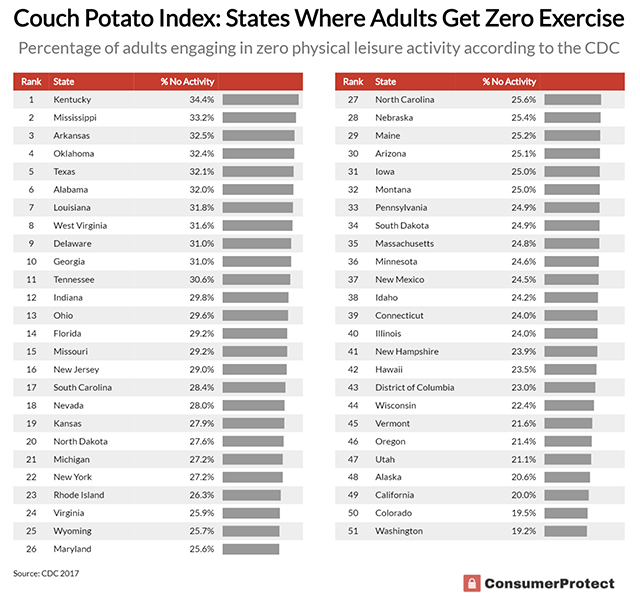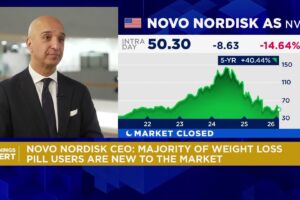Obesity is costly — both on an individual and a societal level.
According to data from the Centers for Disease Control and Prevention, obesity has risen “significantly” in the past decade. More than one in three adults are now obese. An interesting article from ConsumerProtect, a consumer protection advocacy group, dives deeper into this trend — looking at the most, and least, obese states in the country, as well as exercise levels and health in those states.
The state with the highest prevalence of self-reported obesity is West Virginia, where 38.1% of adults were obese. ConsumerProtect also highlights that this goes hand in hand with the fact that West Virginia also has “the highest diabetes rate in the country and ranks poorly on other health metrics that often accompany obesity.”
 CDC
CDC
Mississippi lands the No. 2 spot on the obesity index, with 37.3% of its population qualifying for that label. It, too, has accompanying factors that include the lowest life expectancy, the second lowest level of people who report engaging in no exercise and the highest rate of people who eat less than one piece of fruit a day.
On the flip side, Colorado has the lowest level of obesity at less than 23%. “The proximity to beautiful outdoors and better eating habits in Colorado result in the lowest BMI scores in the country among its citizens. Hawaii, the state with the highest life span in the country, has the third lowest obesity rate in the country. On average, people in Hawaii live 6.5 years longer than those in Mississippi,” ConsumerProtect writes.
 ConsumerProtect
ConsumerProtect
One thing that’s important to point out is that there are costs — both individual and societal — to America’s obesity epidemic. One study found that obese people face medical costs that are more than $1,400 per year higher than those of people who are at a healthier weight; another estimate put that number at about $2,700. They’re also more likely than normal-weight-range people to earn less, another study found.
’[P]eople in Hawaii live 6.5 years longer than those in Mississippi.’
And, overall, obesity costs to our society are astronomical. The Harvard School of Public Health writes: “Treating obesity and obesity-related conditions costs billions of dollars a year. By one estimate, the U.S. spent $190 billion on obesity-related health care expenses in 2005 — double previous estimates.”
So what’s the solution? As the Harvard School of Public Health concludes: “Prevention is key to trimming obesity’s high costs.”







